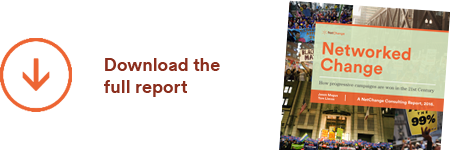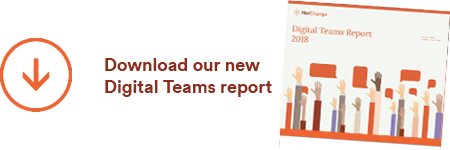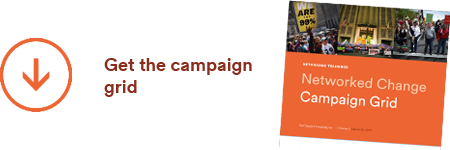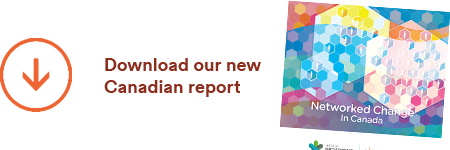A new campaign was launched today by a number of high profile bloggers in the charity tech space. “”What Nonprofits need more than a Facebook Donate Button” is the first volley in a campaign to pressure Facebook to give non-profits back the audiences they stole from them.
Strong words? Let’s back up a bit. Non-profits and community groups of all sizes have spent years, and when you add up staff costs, significant amounts of their scarce resources, building up a fan base on Facebook. In Communicopia’s 2011 Non-profit Digital Teams report, social media engagement was the #1 most common role found on digital teams across the sector.
Things have cooled, somewhat, since those heady days, as more and more orgs are insisting on a business case for social media, watching metrics more closely, and realizing it’s a long road to convert these “likers” to supporters that actually fuel non-profit’s core work: activists and donors. It’s happening, but slower than any of us would like.
So Facebook tried to nudge its audiences towards more useful engagement with the addition of a “donate” button next to charity posts this week. They did this on a small scale, beta basis, but most commentators cautiously welcomed it as a step in the right direction.
What? Only 15% of my audience sees my posts?!?
But the donate button masks a much bigger problem. Ever since Facebook decided to go all Wall Street and become a public company (making their #1 responsibility, legally, to maximize profits), they’ve slowly but steadily been making it harder for these non-profits to reach the people they worked so hard to build.
Even Facebook is admitting this, in a sales presentation obtained by an online marketing news site, saying they “expect organic (ie free) distribution to gradually decline over time.” 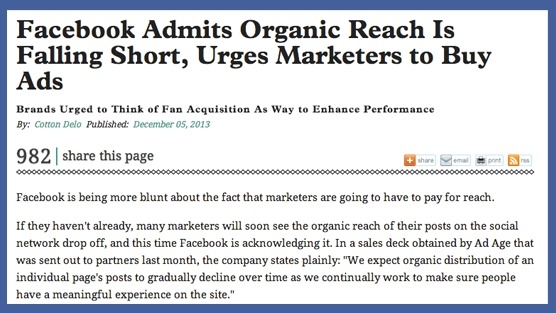 .
.
By some accounts, since the first of their algorithm changes made about a year ago, posts are now seen by less than 15% of our audiences.
In the work I do for non-profits large and small, Facebook is seen as a critical tool for spreading ideas and engaging supporters, and we spend a lot of time planning, creating and promoting high quality content to help achieve our missions.
But if our posts are only getting seen by 15% of our audiences, can we continue to justify this investment?
Non-profits don’t have ad budgets
Facebook’s current answer is pure Milt Friedman: you gotta pay to play. But other than the top tier members of the “non-profit industrial complex”, most non-profits simply don’t have money for advertising. Period. Our 2013 Digital Teams Report (to be released in January) shows that most non-profits spend less than 5% of their budgets on “list acquisition or advertising”.
This is a big problem in and of itself, but whether we like it or not, it’s the reality right now.
If non-profits do advertise, budgets are very small, and due to donor imposed and other restrictions, spending needs to be highly targeted at key moments, campaigns, or fundraising drives where it will bring in the most impact. So even if a non-profit can scrape together the $35 – $100 it costs to get one post seen by more of it’s audience, the vast majority of updates on important issues simply won’t get seen.
Remember: these are people who opted in, voluntarily, to hear from this charity.
Give the people grants, not buttons
A group of smart policy thinkers has been lobbying Sheryl Sandberg, Facebooks’ COO and the person who rolled out Google Grants at her last job, to offer the same model at Facebook. This would go a long way towards solving the problem.
It’s a solid, fair model: You would have to be a legitimate organization, apply and be approved, need to have a baseline of fans, and be posting high quality content that your audience values (measured by engagement). Then Facebook would give you a free bank of promoted posts that you can use as you deem fit to meet your goals. And big spenders can top the grant up with cash.
These grants would be an invaluable way for non-profits to reach their audiences. I can’t believe I just wrote that. Let’s try that again.
These grants would allow non-profits working with very few resources on extremely difficult issues to reach the people who voluntarily signed up to hear from them about those issues, without enriching the 1% every time they want to do so.
They would also put Facebook back on the right side of the moral universe, at least on this issue.
If you’re upset about this and want to help, there are two things you can do:
1. Sign the petition at Change.org
2. If you work at a high profile non-profit, as a consultant or thought leader in non-profit tech, sign on to an open letter to Zuck. This campaign will pick up steam in the new year, email me for more info on that.
Let’s get Facebook to do the right thing and give charities what we really need – free and open access to the audiences we build on Facebook’s platform.
In short, stop being jerks.







